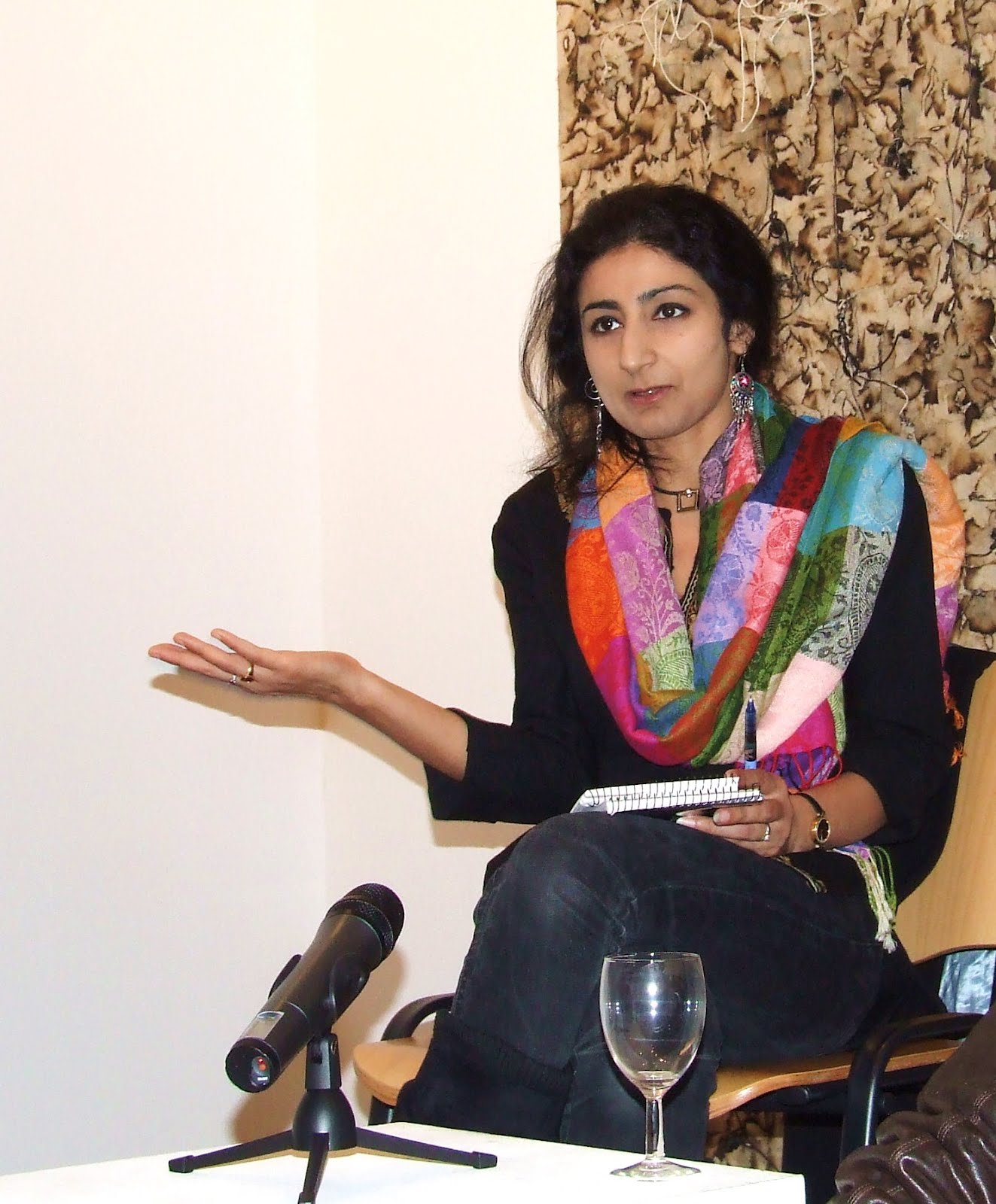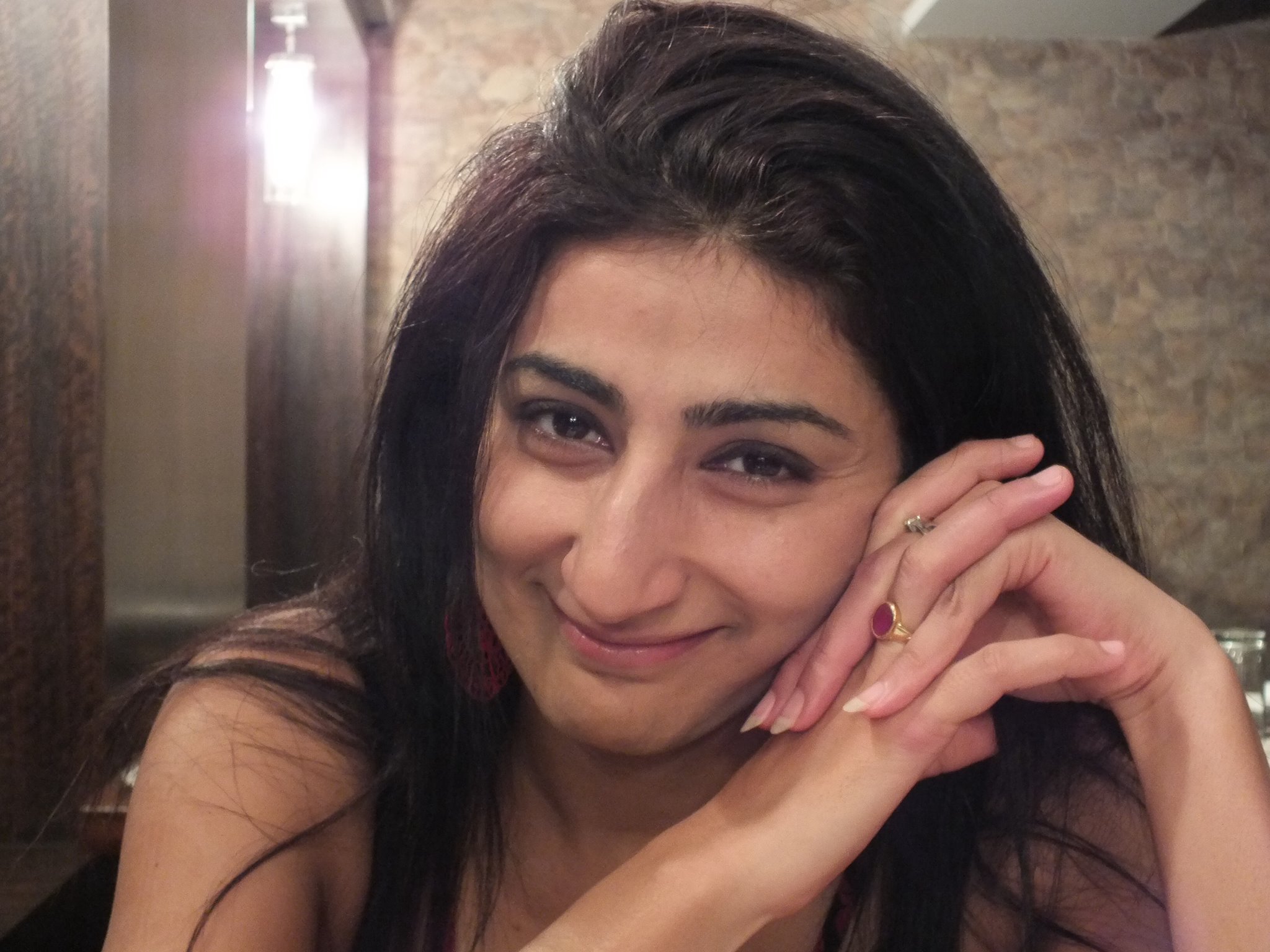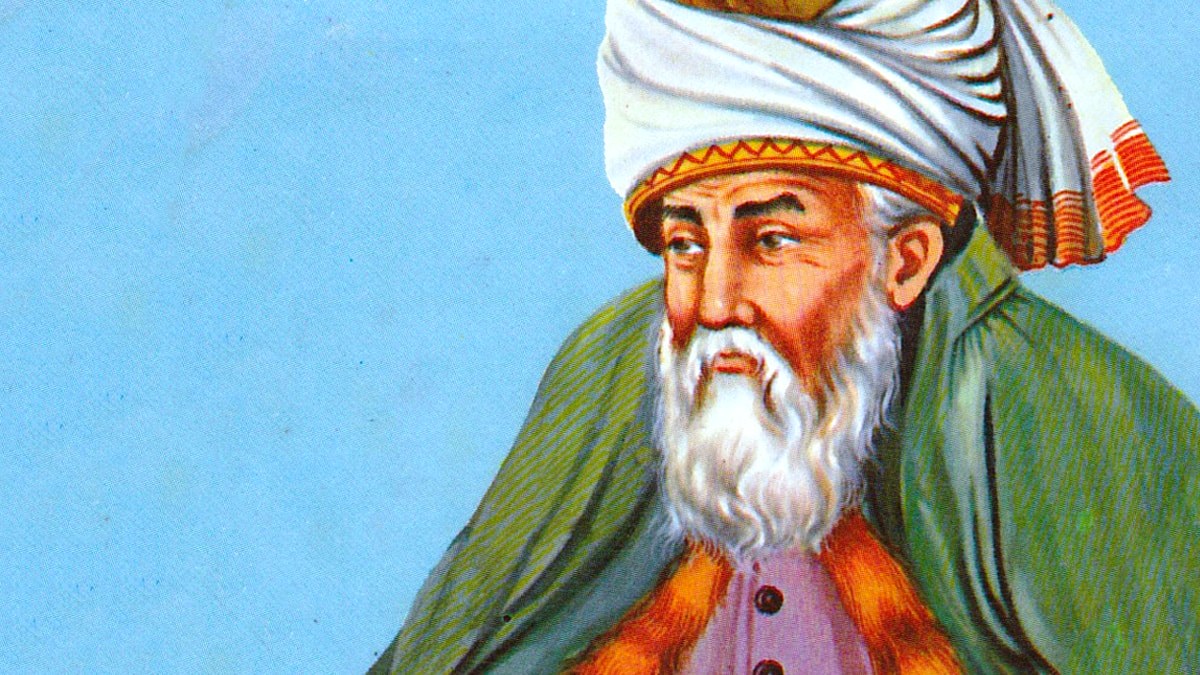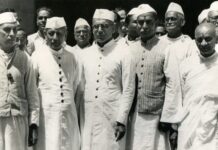Her debut novel speaks a long tale of a lost identity and that was precisely why the jury at Man Asian Literary Prize found it ‘enlightening’. Dr Nitasha Kaul, Kashmir’s first woman novelist, is a different Pandit who does not stop calling spade a spade. Though living far away, her statesmanship on issues concerning her birthplace has triggered a lot of dust and heat recently, reports Bilal Handoo

Two years ago, in a conference room in London, a Kashmiri woman was at the centre of attention. Sporting a boy’s cut and speaking with verve, the young lady was hitting Indian state left, right and centre, highlighting every possible human rights abuse committed by its forces in Kashmir.
Among many other things, she talked about the history of memory, invoking Kashmir’s English poet Aga Shahid’s famous couplet: Your history gets in the way of my memory. What she spoke next, perhaps, struck a poignant chord in audience. She questioned absence of media glare on a different stone pelting going on in Kashmir’s LoC—she termed Kashmir’s Berlin Wall—where separated families tie messages to stones before shooting them across.
“One has to look at these facts of life to see what has done to this place…”
Come December 2015, and the lady was in Al Jazeera’s talk show calling spade a spade while countering arguments of the RSS man on the hot seat. She confronted Ram Madhav, BJP’s national general secretary, by raising issues about mass graves, disappearances and other rights abuses in Kashmir. “It’s a complete travesty of justice there,” she forcibly asserted making the desperate Madhav to breathe an uneasy air. A fellow panellist, academic and BJP ideologue, Gautam Sen, almost lunged to label her “representative of the Pakistan”. But the lady wasn’t fit for the label. Many know her a well-known, reputed Kashmiri Pandit scholar, Nitasha Kaul…

Six years back, 2009, a woman author was shortlisted for the Man Asian Literary Prize. Three heavyweight writers—Colm Tóibín, Gish Jen, Pankaj Mishra—were called to judge the nominated works of two Indians (Omair Ahmad’s Jimmy the Terrorist, Siddharth Chowdhury’s Day Scholar), a Chinese (Su Tong’s The Boat to Redemption), a Filipino (Eric Gamalinda’s The Descartes Highlands) and a Kashmiri novelist (Nitasha Kaul’s Residue) for $10,000 prize. Among the six nominees, Nitasha stood out. It was her debut novel—the only one by a woman on the shortlist, and, the first one by a Kashmiri woman writer.
One of the judges, Tóibín made quick remarks about her novel (having no agent, no publishing contract at that time): “…the sense of commitment to story…the interest in experimenting and making it new, made the time spent judging this prize rewarding and enlightening.” The nomination brought her smiles amid tears—as it was a shift of her “labour of love” to fast fame. “The feeling was huge yet humbling,” Nitasha said. But what stood her out, was her avowal to identify herself as a ‘Kashmiri than an Indian author’, inviting her flak and hate mails.
A year later, 2010, Residue was discussed at literature events in London. In every discussion, the novel would raise some basic questions about human existence: Who are we? How that helps, or hinders us in our ability to move across borders, events? What exile does to humans? What does it mean to lose dear ones? And importantly, what does it mean to hope against the hope! For many, the novel sounded like a typical Kashmir story—as it approaches politics through very personal struggles…

The moment Nitasha talked about ‘travesty’ of justice in Kashmir on the Al Jazeera show, Ram Madhav took a jibe at her, saying she should better focus on sufferings of Kashmiri Hindus. But Nitasha was quick to dismiss the assertion, “All Kashmiris have suffered, regardless of their religion.” The statement was enough to pile up her fan base in valley—though, she literally set plains in simmering rage.
“Nitasha is a poster girl for the Jihadi forces,” thus began trolling. The worst came from KP camp: “This Pandit lady is biased in her approach. How convincingly she brushed aside the plight of 5 lakh KPs, while voicing her own hidden agenda.” The systematic hate campaign didn’t end there. “If there was peace in Kashmir, Nitasha must know, it was only during Indian rule. She believes Kashmiri Muslims can get freedom. Like every one of them in Kashmir, she is also daydreaming!”
Nitasha stood unfazed in the face of troll at first. But, she couldn’t maintain her cool for long, when calls, texts began pouring during nights. “I received death threats as trolls accused me of being funded by ISIS, Pakistan, Arabs… I was warned of an intense hate campaign in days to come,” she said. But as such, intimidation in Indian politics, society isn’t new to her, she recalled. During her college days, while contesting for campus election, she received series of threat calls. The callers wanted her to withdraw her candidature—if she didn’t want to be “raped” or “killed”.
But unlike her college days, today’s Nitasha—labelled as “regressive liberal” by her adversaries—is mired in different hostility. The situation is stemming from the fact that as a Kashmiri Pandit woman, she speaks in non-communal terms about Kashmir’s history, politics. In the climate of communalism, she said, “I can only be KP in the sense of ‘Kashmiri Pandit’, but not Kashmiri and proud, or Kashmiri and progressive.”
Most of the intimidations have also to do with her fearless Kashmir stand, reflecting from her speaking, writings. But trolls, she said, want her to show Kashmiri Muslims their place. “These trolls, the bhakts, the self-appointed ‘super patriots’ of an increasingly intolerant strand of politics,” she said, “have a special constituency among the Kashmiri Hindus who have been radicalised by Hindutva forces over the last two decades.” KPs have suffered trauma, poverty, forced exile and deaths in camps, she said. “But, should this make them unable to recognise what the Indian state has done to Kashmiri Muslims?”
 Residue talks about a paradigm shift in the lives of Kashmiri Muslims, Pandits. There is an ill-fated character, Leon Ali, a Kashmiri, born in Britain—named by his father after the Russian revolutionary Leon Trotsky. Just before his birth, Leon’s father disappears. He is brought up by a single mother in Delhi during eventful 1990s.
Residue talks about a paradigm shift in the lives of Kashmiri Muslims, Pandits. There is an ill-fated character, Leon Ali, a Kashmiri, born in Britain—named by his father after the Russian revolutionary Leon Trotsky. Just before his birth, Leon’s father disappears. He is brought up by a single mother in Delhi during eventful 1990s.
Being a poor Kashmiri Muslim, Leon’s life is miserable in India’s capital. No one is willing to rent their spaces to him until someone intervenes. They bully him in school, and subject him to hostility in college. He vents his woe through an unsettling soliloquy: “Me, whose father abandoned him even as an unborn, me the stranger in every neighbourhood in Delhi that I lived in. Me, the one people spoke about then hushed up as I entered the room. Me.”
Leon’s liking for liberal arts takes him to St Stephens, where Kashmir is but a Led Zeppelin song. His stint at Stephens ends once he runs out of money. Once done with Masters, the uninterested Leon moves to London, turning out to be a good outing for him initially.
Then, 9/11 happens. And like any other Muslim in West, Leon also faces identity dilemmas—although, he is an atheist, who doesn’t take sides. In London, he rejects an invitation by some Kashmiris from “Azad” Kashmir, saying, “Honestly, you are not Kashmiri.” But his upright personality doesn’t stop them to tag him—“Arab Pig”, “Paki Terrorist”… Amid this ruthless Islamophobia, he is being barred from treading certain routes—even, internet cafes have become highly anti-Muslim zones. Under such situation, Leon breaks into a grim monologue: “I am a Nobody. I wanted to scream out in their faces. I don’t know any of you. Just let me be invisible! I don’t want to be marked. To conduct myself under scrutiny. I want to be free…”
Back in India, Gujarat boils over post-Godra. And, Leon sets himself on path of self re-discovery to Berlin—the city of Cold War partitions. There, he meets Keya Raina—a Kashmiri Pandit scholar of exile. She is an insecure immigrant collecting people’s stories. She sees her father dying, and that image haunts her while growing up. Her character is an odd one out. Her lifestyle doesn’t match with her Delhi contemporaries.
In Berlin, Leon’s and Keya’s meeting is a melting pot of Kashmir’s oppressive history and memory. The duo then set out to solve the mystery of the missing Mir, Leon’s father. He shortly learns that his father was a communist, poet and rabble-rouser at Srinagar University, rallying for an independent Kashmir. Leon further learns that his father was employed by an Anglo-German firm. Soon after his marriage, he was posted to England, where he left his eight months pregnant wife after summoned to Berlin on official business, where he disappears.
Leon and Keya shortly meet a bohemian wife of a dour-faced Bengali diplomat, Shula Farid. She turns out to be a revelation for her close links with a Communist activist, Mir. But even after getting so close, Leon’s search for his father remains unfulfilled. He then along with Keya set off on new journey to begin a new life in a new place. Memory once again comes in way of their history when they went for a final trip to Srinagar…

Nitasha who spent her youthful days away from Kashmir regrets missing her long relationship with her birthplace. She raptly remembers her childhood days spent in valley with her father. But now, none from her immediate family dwells valley. They left Kashmir at different times, mostly during early nineties. In exile, she lost her family home. Later her string of K-visits only invoked nostalgia. In her family, she has mother, sister—the duo, still hesitant to talk about Kashmir. But Nitasha (meaning ever-renewing hope) is a different cult. She is somebody who believes the critical discourse on Kashmir is getting even more powerful after 2010.
That year, her write-ups—unapologetically anti-India—established her as a reckoning Kashmiri voice. As valley’s bloody summer streets triggered debates and counter-debates, Nitasha—who avoided writing about Kashmir for years—couldn’t withstand fence-sitting. She wrote torrent of essays detailing historical, political, conflict nature of Kashmir. Since 2010, she argued, people cannot dismiss the legitimate demands of Kashmiris by calling them ‘Islamist’ or ‘foreign-backed.’ “The young generation of Kashmir has made their voice heard,” she said. “As a Kashmiri scholar, I have tried in my work and with my voice, to analyse various dynamics at play.”
A year later, 2011, she was apparently playing her own characters—Leon and Keya—preparing one final trip to Srinagar. That summer, as her Bhutan stint ended, she decided to leave everything behind. She packed up in London and was eager to return home. It was supposed to be a turning point in her life. Just then, she met an accident, and passed under a surgical knife. The impact disabled her arm for two years. The health blow triggered emotional, financial distress besides derailing her homecoming. But, she said, her bad phase hasn’t dashed her hopes to revisit her roots, one day.
Nitasha’s 324 page novel tells the tale, well, in a simple language. The author maintains the literacy suspense till the very end, making Residue a captivating read. The novel narrates the stories of characters, linking them with their parents, their roots. By this, Nitasha only makes the title clear: Residue probes origins.
Leon is shown in rupture relationships while Keya is in a self-reflexive mode. Perhaps, Nitasha’s ace lies in creating the character of the missing Mir, trailing throughout the novel in a Kafkaesque manner.
Another high point about Nitasha’s debut novel is her ability to strike deep sympathies for all her characters—the hallmark of a good novelist. Her ability to involve thoughts with personal journeys is poignant—though her characters seem to be trapped in their own worlds. The political language used in Residue makes one imagine Kashmir a final meeting place of Muslim-Pandit communities. If that’s truism, then, Leon Ali and Keya Raina do exist somewhere in the society.

Before travelling to over 55 countries with a camera and a notebook, Nitasha obtained her BA Honours in Economics from SRCC Delhi University (1997). She has her Masters in Economics with a specialisation in Public Policy, and a Joint PhD in Economics and Philosophy from University of Hull, UK (2003).
She was earlier a tenured Assistant Professor of Economics at the Bristol Business School (2002-2007). In 2010, she became an Associate Professor in Creative Writing at the Royal Thimphu College in Bhutan. From 2007-15, Nitasha was a Fellow at the Centre for the Study of Democracy in London. Presently, she is an Assistant Professor in Politics and International Relations at the University of Westminster, London.
Her first book ‘Imagining Economics Otherwise: encounters with Identity/Difference’ (Routledge, 2007) is a scholarly monograph on economics, philosophy. She still writes, speaks on political economy, economic justice, economic violence besides on neo-liberalism. Modern economics has been divorced from ethics, she believes. “It cloaks itself with scientism and neglects issues of power and identity.”
Nitasha’s expertise on history, politics, and contemporary culture of the Himalayan Kingdom, Bhutan, is equally scholarly. During her long stay in Bhutan, she has produced a reference research about the region. Her next book is on Bhutan’s democratic transition. She also writes short fiction, non-fiction essays and poetry.
But mainly, it’s her political belief that has set her apart in her tribe. She admits that Indian state views Kashmir through its geopolitical framing—as area of “strategic significance”. Kashmiris, she said, are facing system of coercion through illegitimate state power maintained by undemocratic laws, PSA and AFSPA. Under this political system, she believes, Kashmiri women make resistance possible despite facing rapes, displacements.
Nitasha reckons that Narendra Modi’s ascend to power established Hindu supremacy in India. Hindutva forces, she argued, follows Carl Schmitt—the influential German Nazi jurist, who supported authoritarianism based on politics of antagonism. This manufactured antagonism against the ‘other’—us versus them—she said, can be most sharply drawn in Kashmir “where the ‘other’ combines Muslim with pro-Pakistani”.
For her, PDP-BJP alliance was the latest in the series of ‘Mandarin- Machiavelli interactions’ engineered to allow Hindutva forces to call shots in valley. She believes Kashmir isn’t owned either by India or Pakistan. Both these postcolonial nations, she said, are interested in the territory of Kashmir, not the Kashmiris themselves. “And yes,” she asserted, “if Bhutan can be an independent country, then certainly Kashmir can be.” It’s not about viability, she stressed. “It’s really about whether we have that imagination.”

Half a decade ago, 2011, Jaipur Literature Festival was a tightrope walk for the panellists—Mirza Waheed, Swapan Dasgupta, Basharat Peer, Rahul Pandita and Nitasha Kaul. In the front lawns at the Diggi Palace, the debate was moderated by senior journalist, MJ Akbar in front of an international audience.
Akbar shortly stuck to his vintage Kashmir guns: “The only thing Pakistan and India can agree upon is that Kashmir cannot be free.” Nitasha, cooling her heels in the panel, rapidly responded: “…In the nation where army is being used to quell dissent doesn’t really fit the definition of ‘free’.”
Then, she lashed out at what she called “the national rhetoric”—‘Doodh maango ge, kheer denge, kashmir maango ge, cheer denge’. “Indians are ignorant of what is happening in Kashmir,” she stressed. “People in Kashmir want freedom from oppression, freedom to protest, freedom…”
















Wow what an amazing woman! An inspiration. .